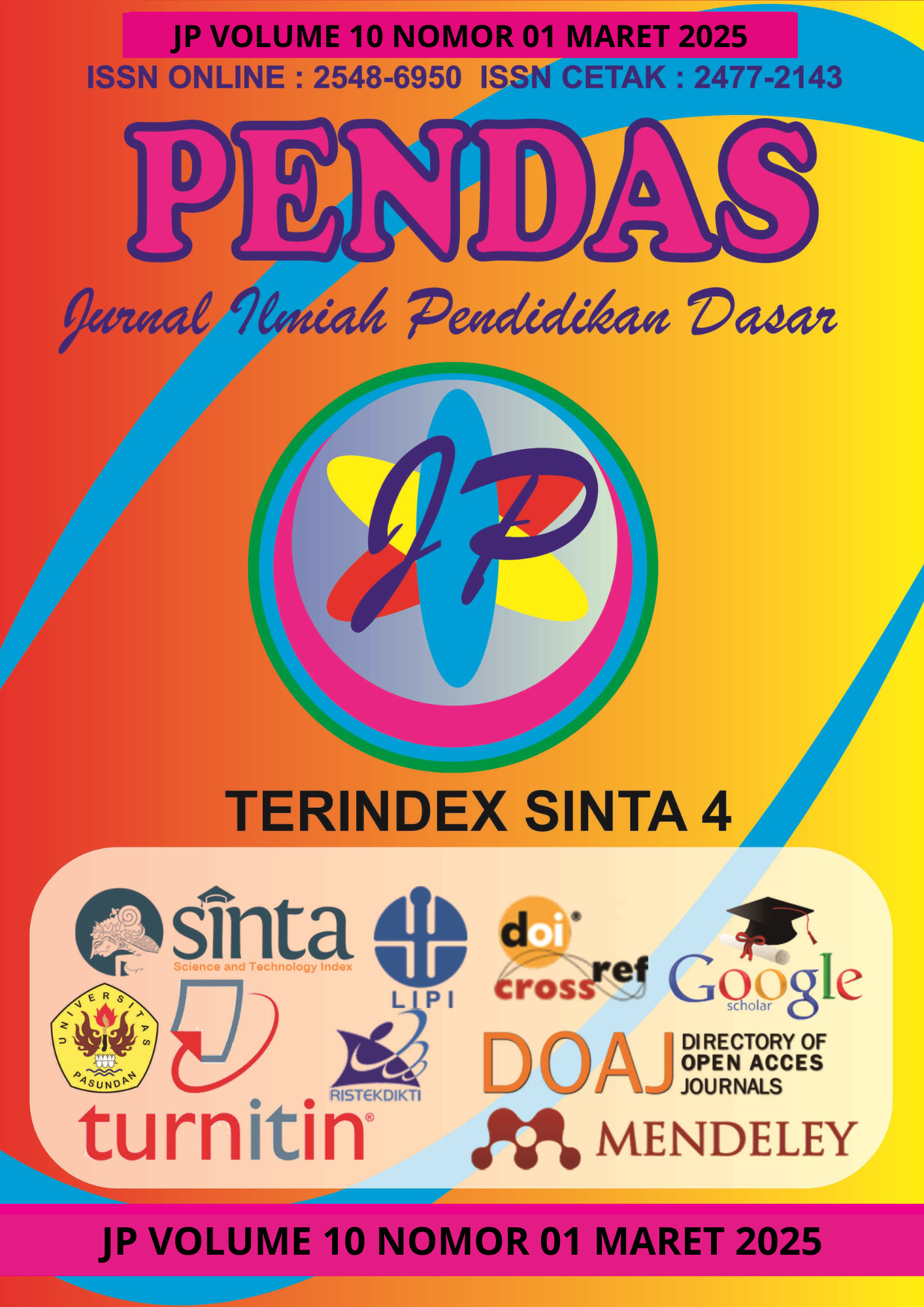PENGARUH METODE QISAH TERHADAP PENINGKATAN MOTIVASI BELAJAR PENDIDIKAN AGAMA ISLAM PADA SISWA SD NEGERI 77 BUTON
DOI:
https://doi.org/10.23969/jp.v10i01.23649Keywords:
Qishah method, learning motivation, Islamic Religious Education, quasi-experiment, story-based learningAbstract
This study aims to analyze the effect of the Qishah method on improving learning motivation in Islamic Religious Education (PAI) among students at SD Negeri 77 Buton. The research employed a quantitative approach with a quasi-experimental design. The research sample consisted of two groups: the experimental group, which was taught using the Qishah method, and the control group, which was taught using the conventional lecture method. Data were collected through a learning motivation questionnaire, classroom observations, and teacher interviews, and analyzed using normality tests, homogeneity tests, and t-tests with the help of SPSS software. The results of the study indicate that the Qishah method significantly enhances students' learning motivation compared to the conventional method. The average learning motivation score of the experimental group increased from 65.2 to 85.7, while the control group only increased from 64.8 to 72.3. Statistical analysis showed a significance value (Sig. = 0.000), which is less than 0.05, indicating a significant difference between the two groups after the intervention. In addition to increasing motivation, the Qishah method also contributes to students' character development through the moral values embedded in the stories.
Downloads
References
Ano, M. M. (2024). Meningkatkan minat belajar siswa pada materi kisah Fathu Makkah melalui poster cerita. Al-Muhtarif: Jurnal Pendidikan Agama Islam, 2(1), 45–60.
Arikunto, S. (2022). Prosedur penelitian: Suatu pendekatan praktik (Revisi ke-6). Rineka Cipta.
Bryman, A. (2022). Social research methods (6th ed.). Oxford University Press
Creswell, J. W. (2021). Research design: Qualitative, quantitative, and mixed methods approaches (5th ed.). SAGE Publications.
Deci, E. L., & Ryan, R. M. (2020). Self-determination theory: Basic psychological needs in motivation, development, and wellness. Guilford Press.
Faroh, T. (2025). Upaya guru dalam meningkatkan motivasi belajar siswa-siswi pada mata pelajaran Pendidikan Agama Islam di SMP Babussalam [Skripsi, Universitas Islam Raden Rahmat Malang].
Field, A. (2021). Discovering statistics using SPSS (5th ed.). SAGE Publications.
Fraenkel, J. R., Wallen, N. E., & Hyun, H. H. (2022). How to design and evaluate research in education (11th ed.). McGraw-Hill.
Jami, F. Y., Salma, S., & Ainah, N. (2025). Meningkatkan kualitas pembelajaran PAI melalui metode luar kelas: Studi kasus pada siswa SDIT di Karawang. Jurnal Ilmiah Pendidikan Islam, 7(2), 113–129.
Mokoginta, S. H. (2024). Penerapan model based learning untuk meningkatkan hasil belajar siswa pada materi kisah ayah para nabi. Al-Minhaj: Jurnal Pendidikan Islam, 5(1), 78–92.
Paluala, Y. (2024). Meningkatkan hasil belajar PAI melalui model problem-based learning pada materi kisah hijrah Nabi Muhammad SAW kelas IV di SD. Al-Mihnah: Jurnal Pendidikan Islam dan Keislaman, 3(1), 25–40.
Pintrich, P. R., & De Groot, E. V. (1990). Motivational and self-regulated learning components of classroom academic performance. Journal of Educational Psychology, 82(1), 33–40.
Sadat, N. (2024). Peran pengajar Taman Pendidikan Al-Qur’an (TPA) dalam meningkatkan karakter disiplin santri di TPA Ulil Albab Candi Karang [Skripsi, Universitas Islam Indonesia].
Siregar, A. (2024). Studi komparatif metode ceramah plus dan metode kisah dalam pelajaran Sejarah Kebudayaan Islam di SMP IT Darul Muqomah Al-Islami [Skripsi, Universitas Islam Sumatera Utara].
Sugiyono. (2021). Metode penelitian kuantitatif, kualitatif, dan R&D (Revisi ke-5). Alfabeta.
Downloads
Published
Issue
Section
License
Copyright (c) 2025 Pendas : Jurnal Ilmiah Pendidikan Dasar

This work is licensed under a Creative Commons Attribution 4.0 International License.














































